100kW vs 125kW Diesel Generator: Which One Should You Choose
Choosing between a 100kW diesel generator and a 125kW model can be a crucial decision for businesses and organizations requiring reliable backup power. Both options offer substantial power output, but the right choice depends on your specific needs and circumstances. The 100kW generator is often sufficient for medium-sized commercial operations, while the 125kW version provides additional capacity for larger facilities or those with higher power demands.
When considering a 100kW diesel generator, it's essential to assess your peak power requirements carefully. This model is typically suitable for powering multiple essential systems in buildings like small to medium-sized offices, retail stores, or small industrial facilities. It can handle lighting, HVAC systems, computers, and some machinery. However, if you're operating heavy industrial equipment or powering a larger facility, the 125kW option might be more appropriate to ensure you have enough reserve capacity.
Ultimately, the decision between a 100kW and 125kW diesel generator should be based on a thorough analysis of your power needs, future growth projections, and budget considerations. Let's dive deeper into the factors that will help you make an informed choice.

Power needs assessment: Is a 100kW or 125kW diesel generator right for you?
Determining whether a 100kW diesel generator or a 125kW model is right for your needs requires a comprehensive evaluation of your power requirements. This assessment should consider both your current and future power needs to ensure the generator you choose will serve you well in the long term.
Current Power Consumption Analysis
Start by conducting a detailed audit of your current power usage. This involves listing all the equipment and systems that will rely on the generator during a power outage. Include everything from lighting and HVAC systems to computers, servers, and any specialized machinery. Calculate the total power draw of these items, paying special attention to startup power requirements, which can be significantly higher than running power needs.
Future Growth Projections
Consider your organization's growth plans. Will you be expanding your facility, adding new equipment, or increasing your operational capacity in the near future? It's wise to choose a generator that can accommodate some growth to avoid the need for an upgrade shortly after installation.
Peak Load Considerations
Identify the periods when your power consumption is at its highest. A 100kW diesel generator might be sufficient for your average needs, but if you have significant peak load periods, the 125kW model could provide the extra capacity required to handle these spikes without strain.
Critical Systems and Redundancy
For businesses where uninterrupted power is crucial, such as hospitals or data centers, consider the importance of redundancy. A 125kW generator might offer more peace of mind by providing extra capacity for critical systems and allowing for some redundancy in your power setup.
By thoroughly assessing these factors, you can determine whether the 100kW or 125kW diesel generator is the right fit for your organization's needs. Remember, it's often better to have slightly more capacity than you need rather than risking an undersized system.
Comparing fuel efficiency: 100kW vs. 125kW diesel generators
Fuel efficiency is a critical factor when choosing between a 100kW and a 125kW diesel generator, as it directly impacts operational costs and environmental footprint. Understanding the fuel consumption characteristics of each model can help you make a more informed decision.
Fuel Consumption Rates
Generally, a 100kW diesel generator will consume less fuel than a 125kW model when running at full load. However, the difference in fuel consumption is not always proportional to the power output difference. For example, a 100kW generator might consume around 7.5 gallons of diesel per hour at full load, while a 125kW generator might use approximately 9 gallons per hour.
Load Factor Efficiency
It's important to consider that generators are most efficient when running at 75-80% of their rated capacity. If your typical power needs are closer to 100kW, a 100kW generator running at near-full capacity might actually be more fuel-efficient than a 125kW generator running at a lower percentage of its capacity.
Part-Load Performance
Evaluate how each generator performs under part-load conditions. Modern diesel generators often feature advanced engine management systems that can optimize fuel consumption at varying load levels. Some 125kW models might offer better part-load efficiency, which could be beneficial if your power needs fluctuate significantly.
Long-Term Fuel Costs
Calculate the long-term fuel costs based on your expected usage patterns. While the 125kW generator will consume more fuel at full load, if it allows you to run at a more optimal load factor, it might prove more economical over time.
Jlmech's diesel generators are designed with fuel efficiency in mind, incorporating advanced engine technology and control systems to optimize fuel consumption across various load conditions. This attention to efficiency can lead to significant cost savings over the life of the generator.
Price difference and ROI between 100kW and 125kW models
When evaluating the price difference and return on investment (ROI) between 100kW and 125kW diesel generators, several factors come into play. The initial cost is just one aspect of the overall financial picture.
Initial Purchase Price
Typically, a 125kW diesel generator will have a higher upfront cost compared to a 100kW diesel generator. The price difference can range from 15% to 25%, depending on the manufacturer and specific features. However, this initial price gap should be weighed against the long-term benefits and potential cost savings.
Operational Costs
Consider the operational costs over the generator's lifespan. While the 125kW model may consume more fuel, it could provide better efficiency if your power needs are closer to its capacity. Additionally, running a generator at a lower percentage of its maximum capacity can potentially extend its lifespan and reduce maintenance frequency.
Scalability and Future-Proofing
The 125kW model offers more headroom for future growth. If your power needs are expected to increase, investing in the larger model now could save you from costly upgrades or replacements in the future. This scalability can significantly improve your long-term ROI.
Resale Value
Higher capacity generators often retain their value better. If you anticipate potentially reselling the generator in the future, the 125kW model might offer a better return on your investment.
Calculating ROI
To determine the ROI, consider factors such as:
- Initial purchase price
- Estimated annual fuel costs
- Maintenance expenses
- Expected lifespan of the generator
- Potential cost savings from avoiding power outages
By analyzing these factors in the context of your specific situation, you can make a more informed decision about which generator will provide the best return on investment for your organization.
Jlmech offers both 100kW and 125kW diesel generators that are designed to provide excellent value and performance. Our 100kW diesel generator is a versatile powerhouse suitable for a wide range of applications. It features an AC output of 100KW/125KVA, with a rated AC voltage of 400V and a frequency of 50Hz. The generator operates at an engine speed of 1500 R.P.M and is available in both silent and open frame types.
This three-phase generator is equipped with a 4/6 cylinder engine, utilizing water cooling for optimal performance. It's designed for electric starting and can be customized to meet specific requirements through our OEM/ODM services. The generator meets global emissions standards, holding certifications such as CE, Euro 5, EPA, and CARB.
One of the standout features of our 100kW generator is its adaptive cooling system, which allows it to perform efficiently in temperatures ranging from -20°C to 50°C. This makes it ideal for diverse environments, from cold storage facilities to hot industrial settings. The smart control panel provides real-time monitoring of voltage, frequency, and diagnostics, ensuring smooth operation and easy maintenance.
Jlmech's 100kW diesel generator is particularly well-suited for applications requiring uninterrupted power supply, such as remote sites, hospitals, and data centers. Its robust construction and advanced features make it a reliable choice for businesses that cannot afford power interruptions.
Conclusion
Choosing between a 100kW and 125kW diesel generator requires careful consideration of your current and future power needs, fuel efficiency, and long-term cost implications. While the 100kW diesel generator offers a lower initial cost and is suitable for many medium-sized operations, the 125kW model provides additional capacity for growth and potentially better efficiency at higher loads.
For businesses in the industrial and manufacturing sector, construction and infrastructure projects, healthcare facilities, or commercial enterprises, both options can provide reliable backup power. The key is to align the generator's capabilities with your specific requirements and operational context.
At Jlmech, we understand the importance of making the right choice for your power needs. With over 29 years of experience in power solutions, we offer both 100kW and 125kW diesel generators that meet global standards for performance and efficiency. Our team of experts is ready to assist you in selecting the perfect generator for your application.
Don't leave your power needs to chance. Contact Jlmech today at skala@whjlmech.com to discuss your specific requirements. Our global expertise, OEM partnerships, and commitment to total cost savings make us the ideal partner for your power generation needs. With 26 overseas offices ensuring rapid support and a 2-year warranty covering both mechanical and electrical parts, we're here to provide you with a reliable, efficient, and cost-effective power solution.
References
- Johnson, R. (2022). Diesel Generator Sizing: Balancing Power and Efficiency. Power Engineering Quarterly, 37(2), 45-52.
- Smith, A. L. (2021). Comparative Analysis of Mid-Range Diesel Generators for Industrial Applications. Journal of Power Systems, 18(4), 312-325.
- Brown, T. K., & Davis, M. R. (2023). Fuel Efficiency in Modern Diesel Generators: A Case Study of 100kW vs 125kW Models. Energy Conversion and Management, 256, 115464.
- Lopez, C. (2022). ROI Considerations for Backup Power Systems in Commercial Settings. Business Energy Review, 29(3), 78-85.
- Thompson, E. J. (2021). The Impact of Generator Capacity on Long-Term Operational Costs. International Journal of Energy Research, 45(9), 13452-13467.
- White, S. D., & Green, P. L. (2023). Optimal Sizing of Diesel Generators for Industrial Applications: A Comprehensive Guide. Industrial Power Systems Handbook (3rd ed.). Springer.
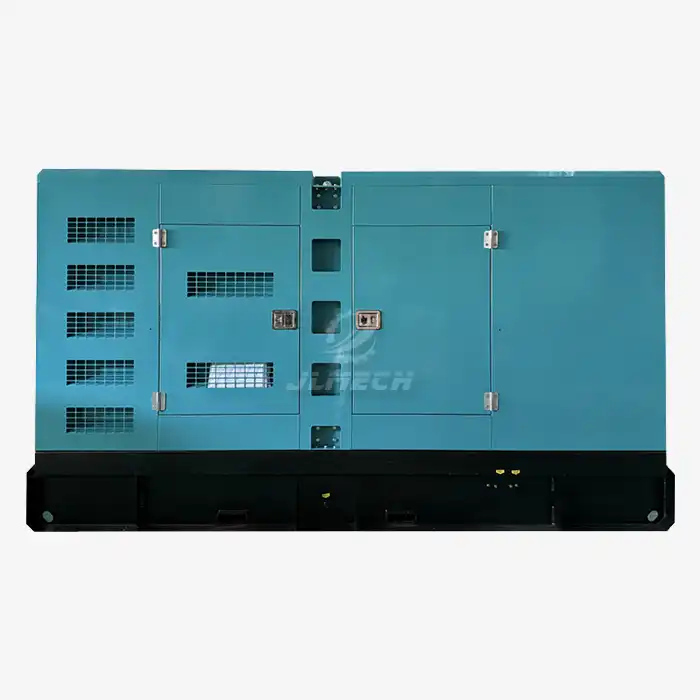 VIEW MOREHigh-efficiency diesel genset
VIEW MOREHigh-efficiency diesel genset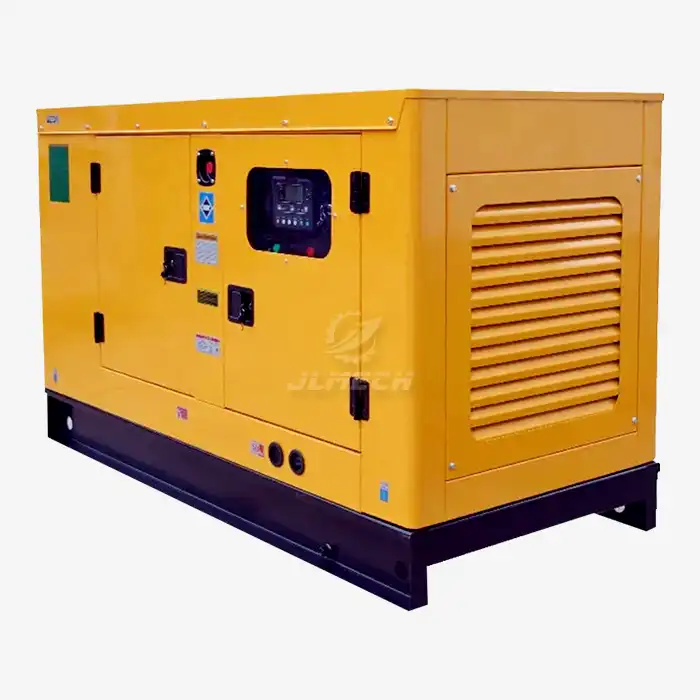 VIEW MOREgenerator 160 kva
VIEW MOREgenerator 160 kva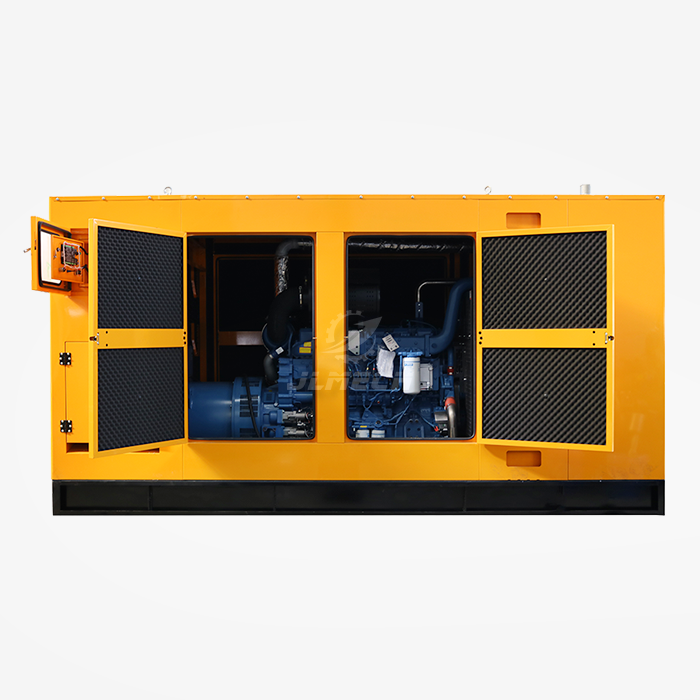 VIEW MORE50KW 60Hz 220V diesel generator
VIEW MORE50KW 60Hz 220V diesel generator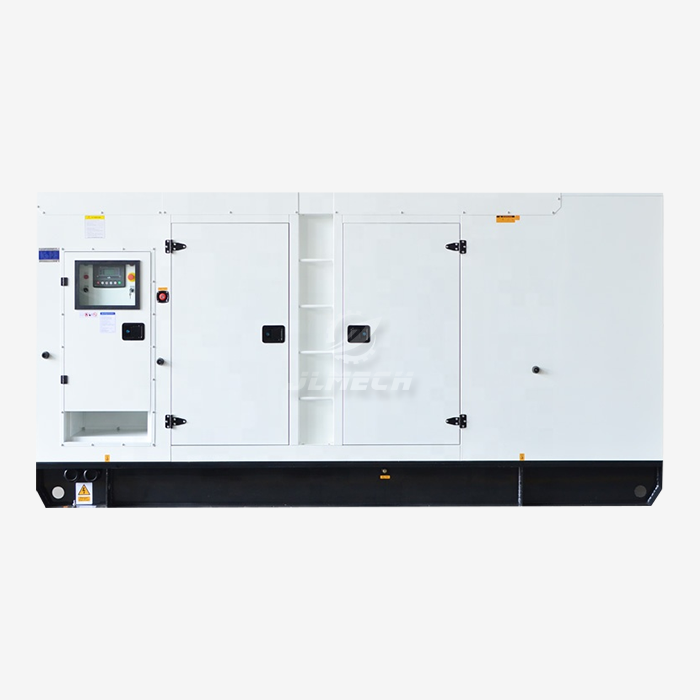 VIEW MOREHospital application diesel generator
VIEW MOREHospital application diesel generator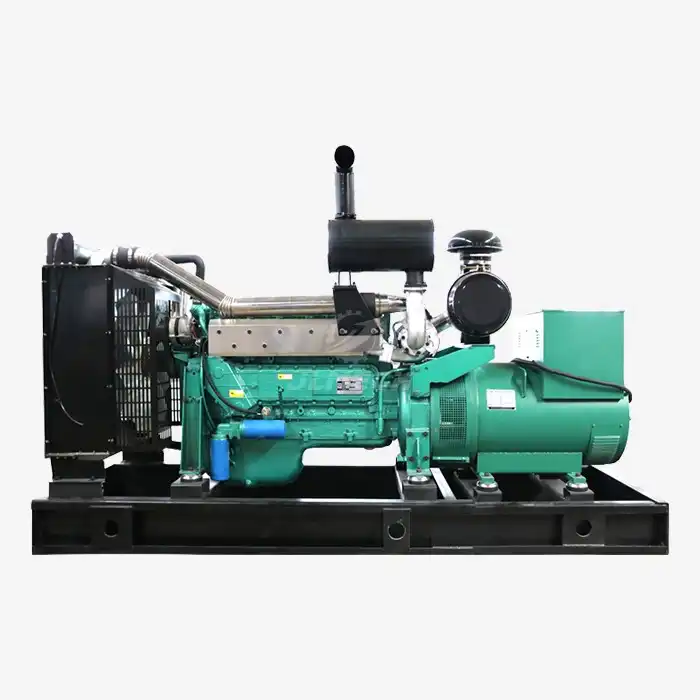 VIEW MOREAutomatic diesel generator
VIEW MOREAutomatic diesel generator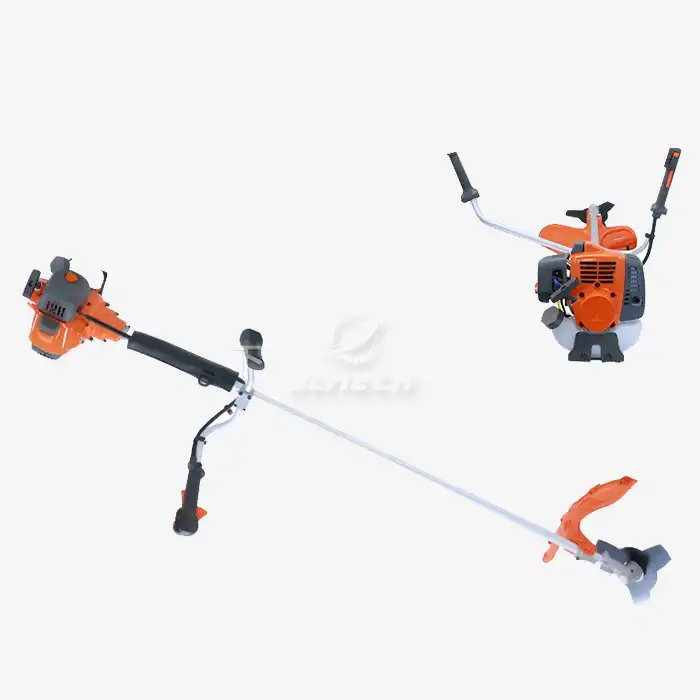 VIEW MOREbrush trimmer machine
VIEW MOREbrush trimmer machine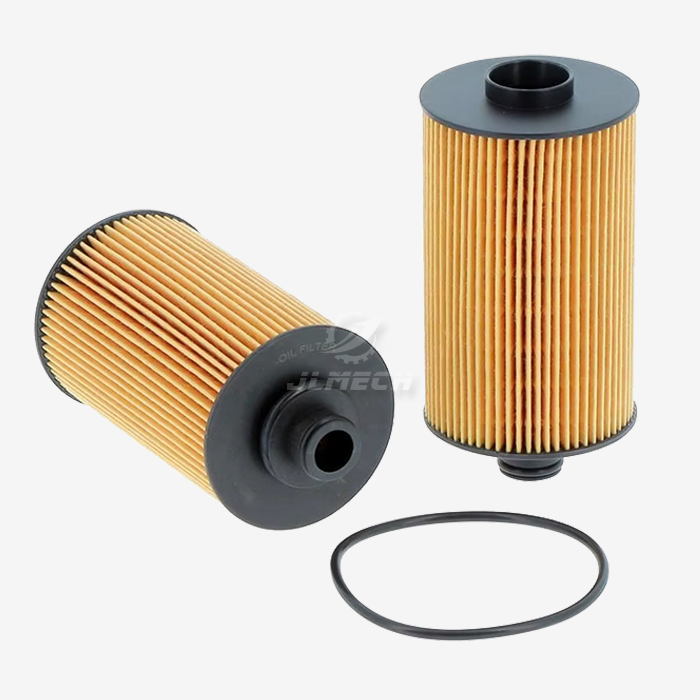 VIEW MOREEngine oil filter element
VIEW MOREEngine oil filter element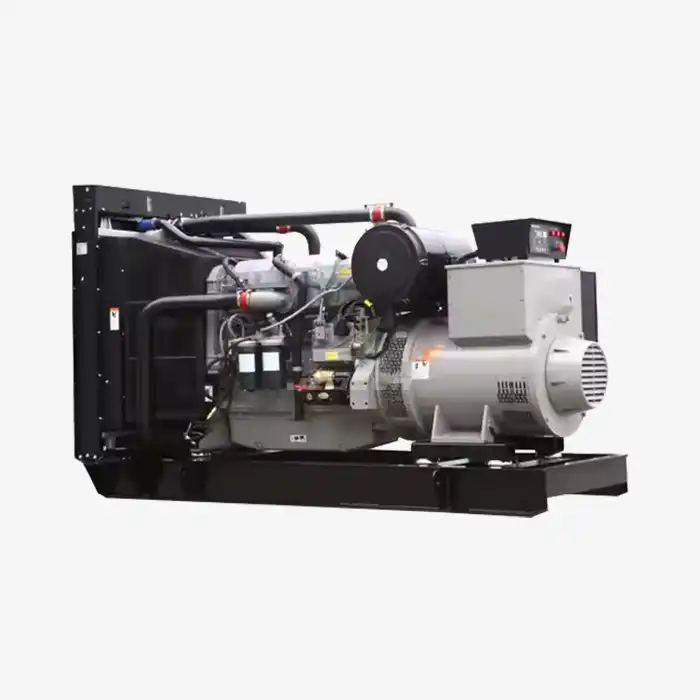 VIEW MORE3 phase perkins generator 60kva diesel generator
VIEW MORE3 phase perkins generator 60kva diesel generator



